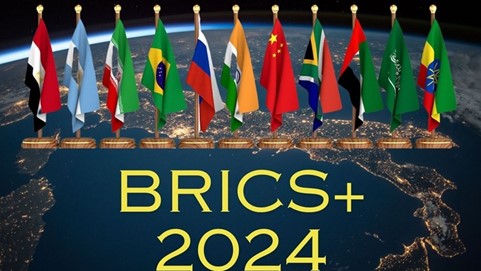South Africa must contest with the rise of newly added BRICS member states who are looking to grow their own Agricultural exports in the association of nations. Pretoria has a delicate balance to maintain. The message the South African government has to bring to the table is even more urgent with the addition of the new members.
South Africa’s agricultural growth in the first 30 years of the democratic era has been supported, among other things, by two pivotal interventions: a deliberate and concerted strategy to invest in genetics for crops, horticulture, and livestock, and a strong push to expand export markets. “As production continues to increase, and there remains capacity for expanding production, these two levers must be accelerated,” says Wandile Sihlobo, the chief economist of agricultural business chamber Agbiz. “The trade issues are not purely economic but political, which means that the South African political leadership must take a clear stand and focus on retaining the existing markets through dialogue with the political leadership of the countries where we continue to experience challenges.” Very important, in the near term is the upcoming BRICS+ summit, which will take place in the city of Kazan in Russia from 22 to 24 October.
Egypt, Ethiopia, Iran, Saudi Arabia, and the United Arab Emirates officially joined the five original member states Brazil, Russia, India, China and South Africa in 2024. A further 30 nations are being evaluated for potential inclusion, with plans to introduce a new category of BRICS partner countries, a move to diversify and strengthen the association’s multidimensional agenda.
BRICS is largely representative of the global south, given the absorption of emerging economies into its ranks. South Africa for its part has a flourishing agriculture business. This is due to its temperate climate. President Cyril Ramaphosa when he and his ministers and advisors arrive in Kazan, Russia, needs to raise the matter of protecting agriculture sustainability with his respective counterparts Chinese President Xi Jinping, Russian President Vladimir Putin, Indian Prime Minister Narendra Modi among others. At the heart of these discussions should be food security for future generations. South Africa needs to advocate for retaining its current markets on its home soil given its significant size and output in agriculture. Modernization in this sector needs to take centre stage to improve utility and substance. This is improvement in technology, science and equipment. Farming should be seen as a vital profession and should be a high priority at the summit.
These discussions on agriculture need to be centred around what can be done to conserve what has worked for decades in the present while improving on it in the future. The war Russia the host country of the Summit is waging in Ukraine has left much to be desired in terms of rising grain and fuel prices. Meanwhile the transition to low carbon energy by the BRICS Plus member states is proving to be a tough transition. The bloc is believed by its advocates to have the potential to tackle energy challenges in member states and should use their individual capabilities and resources toward addressing these challenges.
South Africa’s Electricity and Energy Minister, Dr Kgosientsho Ramokgopa, called on the BRICS+ bloc of countries to work together to assist and support member countries in this endeavour. Ramokgopa was delivering his opening remarks at the 9th Annual BRICS Energy Ministers’ Meeting in Moscow, Russia on Thursday (26 September). “We believe that this BRICS group of like-minded country members has a huge potential, and working together will strengthen this resolve through cooperation on energy security.” “[It will] also provide an opportunity to join efforts to annihilate the challenges diagnosed during the BRICS 2023 Summit held in South Africa, such as addressing the lack or absence of integrated energy policy framework, diversification and beneficiation at source of critical minerals, infrastructure development, manufacturing, technology transfer and intellectual property, scaling up energy efficiency, mobilisation of finance and investment, as well as skills and capacity building, amongst others,” Ramokgopa said.
The role of BRICS should be to focus on renewable energy such as solar, wind and hydrogen. South Africa has immeasurable potential in that regard as do most of the new member states joining the bloc. We could become a major source of renewable energy for export. It all depends on how Pretoria and the major corporations utilize these resources to their advantage. The other member states in BRICS also have their role to play bringing renewables energies to the forefront. Amidst these discussions and debates it is hoped that transparency of what agreements are made and what actions are being held accountable to the wider public of the member states concerned. Yes, it will be challenging to go down a path to full renewable energy. But then if it wasn’t challenging then it wouldn’t be worthwhile doing. South Africa needs to urge its significant counter parts Brazil, Russia, India, and China to invest their resources in sustainable energy.
Investing in sustainable agriculture and energy would be the best planning for the future. It depends on how the various leaderships and powers that be will utilize the benefits of these resources for their populations and future generations.
Article written by:
Yacoob Cassim
Journalist at Radio Al Ansaar






